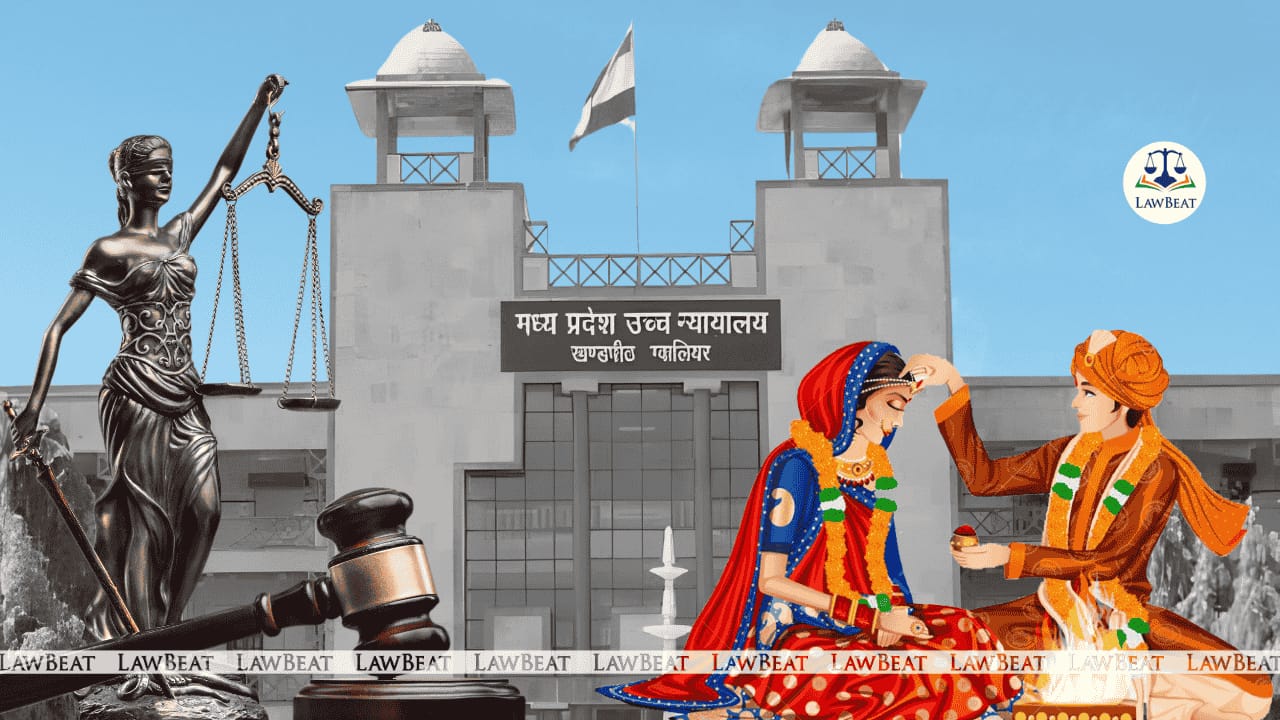Lodging of False Complaint Amounts to Cruelty : Madhya Pradesh HC Grants Divorce to Husband on Grounds of Cruelty by Wife

The wife had filed two criminal cases against the husband and in-laws alleging cruelty and dowry demand, both of which lead to acquittal, hence establishing “cruelty by way of false litigation”
The Madhya Pradesh High Court (HC) has reiterated that “lodging of false complaint amounts to cruelty,” while granting a divorce decree to the appellant-husband, on grounds of cruelty and desertion by his wife. The HC’s Gwalior bench, presided over by Justice Anand Pathak and Justice Hirdesh, overturned the Family Court’s dismissal of the husband’s divorce petition, citing the wife’s filing of false criminal cases as constituting mental cruelty.
The case pertained to the wife lodging two criminal complaints against the husband: one in 2017 for offences under Sections 324, 323, and 506 of the IPC, and another for dowry harassment under Section 498-A IPC and the Dowry Prohibition Act. Both cases resulted in the acquittal of the husband and his family. The husband argued that the false litigation, coupled with the wife’s desertion, amounted to cruelty and an irretrievable breakdown of the marriage.
The marriage between the parties was solemnised on April 26, 2024. The husband alleged that the wife expressed discontent with the marriage shortly after their wedding, claiming it was against her will. During her limited stay of 13-14 days at her matrimonial home, the wife allegedly refused to consummate the marriage, misbehaved with the husband and his family, and left the home permanently in June 2014, taking personal belongings and important documents. Efforts to reconcile failed, and the wife allegedly threatened to implicate the husband and his family in false cases if pressured to return. And subsequently the criminal cases were filed by her.
The Family Court dismissed the divorce petition filed by the husband, concluding that he failed to substantiate the claim of cruelty against the wife and was ineligible for divorce on the grounds of cruelty under Section 23(1)(b) of the Hindu Marriage Act (HMA). The court held that the husband could not establish desertion by the respondent for a continuous period of at least two years prior to filing the petition, as mandated under Section 13(1)(i-b) of HMA. This decision was challenged by the husband before the High Court, contending that the findings of the Family Court, while rejecting the divorce petition, were totally perverse and contrary to the law and evidence available on record.
The court referred to the Supreme Court's ruling in Rani Narsimha Sastry v Rani Suneela Rani (2020), which established that when a husband faces criminal prosecution initiated by his wife under Section 498-A of the IPC, and such proceedings result in his acquittal, it constitutes mental cruelty. This provides a valid ground for seeking dissolution of marriage under Section 13(1)(i-a) of the Hindu Marriage Act.
In discussing the concept of “mental cruelty,” the court referenced landmark decisions, including Praveen Mehta v. Inderjit Mehta, Samar Ghosh v. Jaya Ghosh, and Manisha Tyagi v. Deepak Kumar, which enumerate instances where mental cruelty could be established. It emphasised that persistent abusive conduct, refusal of cohabitation, and prolonged separation leading to irretrievable breakdown of marriage are indicative of mental cruelty.
On examining the evidence, the court found that the wife had initiated multiple criminal cases against her husband and his family, which culminated in their acquittal, thereby affirming the husband's claim of cruelty. Additionally, the wife had deserted the matrimonial home without justification shortly after the marriage and refused to resume cohabitation. “It appears that husband and his family members were subjected to torture physically and mentally at the behest of wife, not that of husband and his family members and subsequently, two criminal cases prosecuted against her husband as well as against her in-laws, which resulted into acquittal, as the wife has utterly failed to prove the ingredients of either Section 498-A of IPC or Sections 323, 324 and 506 of IPC,” the court noted.
“They are living separately for the last more than 10 years. The matrimonial bond is completely broken and is beyond repair. Long separation of husband and wife and in absence of cohabitation and irretrievable breakdown of all meaningful bonds as well as marital relationship and the existing bitterness between husband and wife, with multiple litigation between the parties in which the husband and his family members have been acquitted, then continuation of such married life would only mean giving sanction to cruelty and desertion,” the court further observed.
In light of these findings and the irreparable breakdown of the marital relationship, the court allowed the husband's appeal, setting aside the Family Court's decision.
The court held, “cruelty by way of false litigation is duly established.” It was also ruled that the wife, being employed and childless, was not entitled to permanent alimony under Section 25 of the HMA.
Cause Title: RAMCHARAN RAGHUVANSHI Versus SMT. UJALA [FA 1915-2022]
